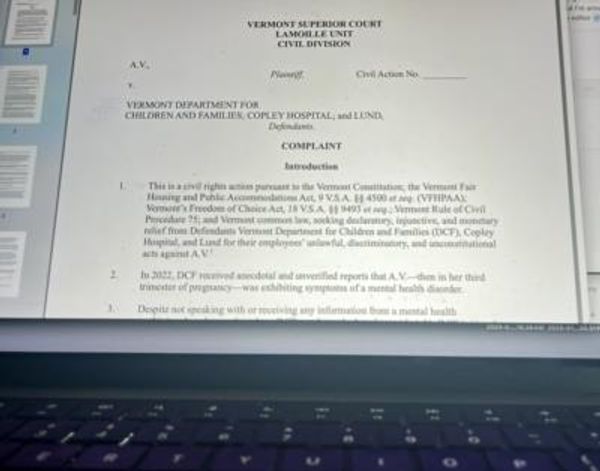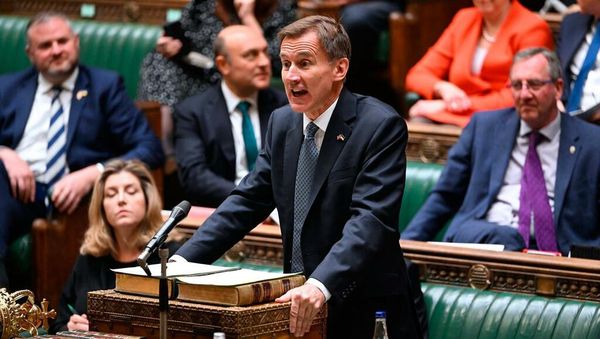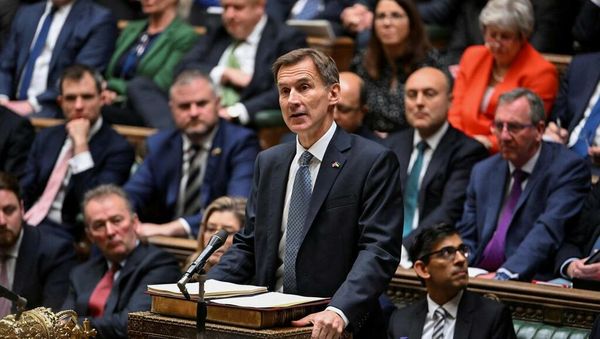
Britain’s new government defined itself by the prudence of its economic management and its willingness to do the right thing, despite the political cost. In September its giddy predecessor, led by Liz Truss, sidelined Britain’s economic institutions and unveiled vast unfunded tax cuts, causing a bond-market crash. The appointment of Rishi Sunak to succeed Ms Truss meant the grown-ups were back in charge. Standing in front of 10 Downing Street on the day he took office amid a “profound economic crisis”, Mr Sunak promised that he would not duck difficult decisions.
On November 17th his government unveiled its “autumn statement”, a budget-in-all-but-name and a blueprint for solving Britain’s many economic problems. Regardless of all that responsible rhetoric, it was an economic and political sleight of hand.
Even as he pretended to be tough, Jeremy Hunt, the chancellor of the exchequer, shuffled most of the difficult decisions on to the next government. In its favour, unlike Ms Truss’s announcements, the autumn statement was at least sane; the risk of imminent financial disaster has been suppressed. However, the statement was driven by politics rather than economics. Instead of confronting Britain’s ills, it postponed the pain—a choice that may suit the Conservative Party, but which will leave Britain needlessly vulnerable to future crises.
Mr Hunt needed to announce a fiscal contraction to regain credibility in the markets. He also needed to fill the gaping hole in Britain’s budget. The economy is probably already in recession. It is being clobbered by high energy prices, a result of Russia’s invasion of Ukraine. The Bank of England is raising interest rates to slow the economy further in order to control inflation. And the long-term fiscal outlook is bleak. Energy is just the latest crisis to have raised the debt-to-GDP ratio, which was 35% in 2006 but which is forecast to breach 100% this year. By 2027-28, Britain’s annual debt-service costs will be 3.4% of GDP—roughly what the country spends on education, and higher than at any time since the 1980s.
However, the overall fiscal consolidation has been put off until 2024. Even then, rising tax revenues, mainly from freezes and cuts to tax thresholds, are sufficient to offset only half of those of Ms Truss’s giveaways which Mr Hunt has kept. Taking the last budget before hers as a baseline, there is no net consolidation until 2025. The overall belt-tightening is four-fifths spending cuts and one-fifth tax rises, not the 50-50 split that Mr Hunt advertised on the basis of his policies alone. Almost all the spending restraint is pencilled in for after the next election, due by January 2025, after which the opposition Labour Party is likely to be in government.
Mr Hunt still found room for generosity. Rightly, he chose to uprate benefits for the poor with inflation. Wrongly, he was equally generous to pensioners (including wealthy ones). Both groups will get extra cash handouts, too. Although government departments will not see their budgets rise to compensate them for the energy shock, which will be painful, neither will they see cuts in cash terms to existing spending plans, as some had feared. Schools and hospitals will get more money.
Keynesian economists might cheer the delay to consolidation, arguing that a weak economy today needs support from government spending. If a stimulus were desirable, however, the Bank of England would be cutting interest rates, not raising them to fight inflation. True, an energy price cap—which will become less generous in April—supports the economy in a way only the government can. But it does so by enabling households and businesses to burn scarce global supplies of gas, pushing up prices and making life more difficult for poor countries like Bangladesh. It would be cheaper, more efficient and more ethical to let the market set prices while redistributing cash to protect the poor.
Mr Hunt should also have made an immediate start on consolidation by putting pension spending on a sustainable path, reforming the taxation of property and raising income tax. Instead, he left the dirty work of controlling borrowing to the next government.
That suits the Conservatives’ agenda. British living standards are falling sharply, despite the energy price cap. Delaying the pain minimises the blame the Tories will receive before the next election. If they lose it, it will put the burden of raising taxes or cutting spending on Labour.
But the delay is bad for Britain. It means that debts will continue to mount and that, to control inflation, the Bank of England will need to raise interest rates higher than it otherwise would. Labour’s instinct will be to spend more on public services if it wins the next election. If, in power, it fails to raise taxes sufficiently, the can will be kicked further down the road. After 2030 Britain’s ageing society will mean even more pressure on its budget. And Mr Hunt’s blanket generosity to pensioners only adds to that.
Next to the amateurish Ms Truss, Messrs Sunak and Hunt come across as responsible, wise and reassuringly apolitical. They deserve credit for having forestalled a bond-market crisis. They have not, however, secured the stable debts that Britain needs.
In his statement Mr Hunt rightly noted that the government could spend generously during the pandemic and the energy crises because it had the room to borrow. As debts mount and interest rates rise, that fiscal space is ebbing away. One day, Britain could face a crisis that the government cannot fight by opening its chequebook. “As Conservatives we do not leave our debts to the next generation,” Mr Hunt declared. His party is, however, leaving the country’s debts to the next government. That amounts to pretty much the same thing. ■










